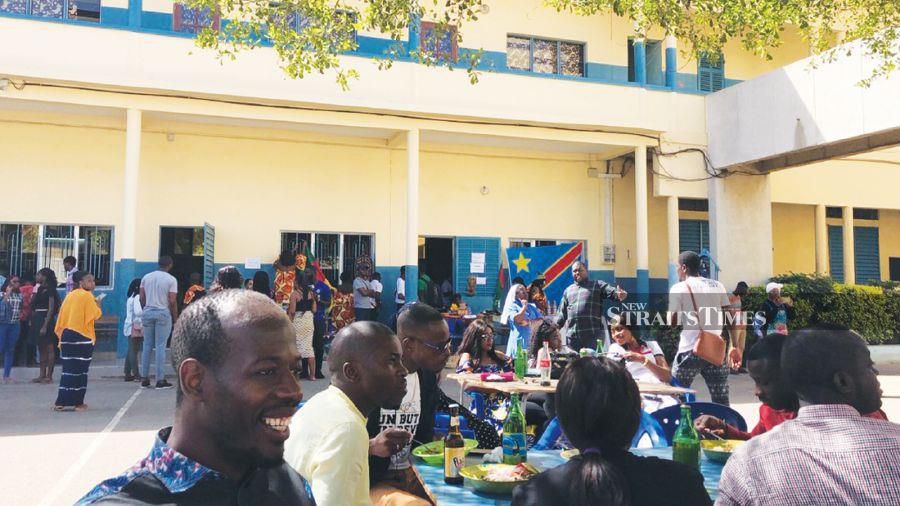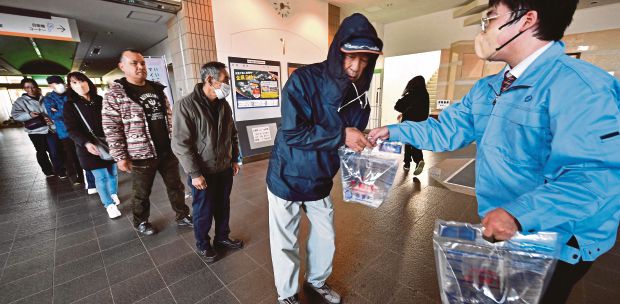EASTER Monday last week was a public holiday in Senegal. Surprising, considering that 94 per cent of the population are Muslims.
Not so surprising considering that the Senegalese are very much like Malaysians — any and every excuse for a public holiday will not be questioned, and it is a time when most of the Dakar citizens return to their hometowns to be with their extended families.
Since the town was practically empty that Monday, one of the draws was a charity bazaar at one of the Christian schools in town. The bazaar, now in its fourth year, was held with a theme of “African Culture and Gastronomy”, meaning that each stall would showcase food and wares from a particular African country. Since the school attracted students from all over Africa, it was also a chance to catch some non-Senegalese African music and performances.
The sun, as always, was shining brightly. But it was a pleasant kind of heat, especially with the slightly cold wind coming in from the sea. So there I was, sitting at one of the tables under a big, shady tree in the courtyard of this school, enjoying the cool breeze and just watching people milling about from stall to stall. It was a good way to be laidback and soak in the springtime atmosphere. It was practically a scene from a feel-good movie — the abundance of food, people laughing and chatting away, amateur performers on the makeshift stage singing and performing their hearts out, the heat of the mid-day sun mollified by the cool spring breeze.
This was Dakar and Senegal at its best — no curfew, everyone free to go anywhere they wished, freedom of worship, freedom from fear. And it has been this way for the past 58 years. An amazing feat, really, for this small West African nation. Of course, it has its own share of problems, but nothing of the magnitude of other countries in the region and beyond.
In the northeast of Africa, Khartoum is still volatile after its long-standing president was ousted in a coup; in southern Africa, Hurricane Idai had resulted in the deaths of more than 1,000 people; in West Africa, more than 115 Fulani tribesman in Mali are dead after an alleged ethnic-cleansing exercise; in some countries of West Africa, people minimised their movements for fear of being caught up in unrest that might flare up at any time.
When tragedies occur, it is not just the loss of lives and the potential behind those lives that is mourned — they also mourn the end of a way of life. Some would argue that almost 18 years after the gruesome attacks of 9/11, the United States is still not back to the carefree way of life it had on Sept 10, 2001.
As I sat there sipping my bissap juice, news filtered in about the 290 fatalities in the Sri Lanka bombings. More tragic news. At the table next to me, the discussion was about the impending resignation of the prime minister of Mali and his entire cabinet. It felt repetitive. Less than three months before, towards the end of January, the entire cabinet of Burkina Faso, including its prime minister also resigned, citing failures in addressing increased kidnappings and terrorists attacks.
The conversation died down when the performers took to the stage, and in that brief moment the insecurities of the world melted away as guests basked in the afternoon sun and enjoyed the food and show.
In a sea of political and physical insecurity, Senegal remains an oasis of calmness. The country’s major preoccupation is how to ensure its blueprint for economic development remains on track, and all indicators show that this will not be a problem. They have not had to grapple with attacks or bombings, or substantial dissent.
The Senegalese are not the only ones who should be thankful for the calm that they take for granted. Over on the other side of the world, Malaysian Christians, too, were enjoying a peaceful Easter period. It is easy to forget, sometimes, just how lucky we are to be Malaysians. We have no natural disasters threatening us with every change of season, no massive disruption to our way of life because of political uncertainty, no shortage of necessities because of economic upheavals.
While countries around us fall prey to the vulgarities of unrest, we should — forgive the pun — fight to keep the peace we enjoy.
The writer is a foreign service officer and an honorary research fellow of the University of Sheffield, the United Kingdom. These days, she writes primarily on international affairs, with particular emphasis on Africa






